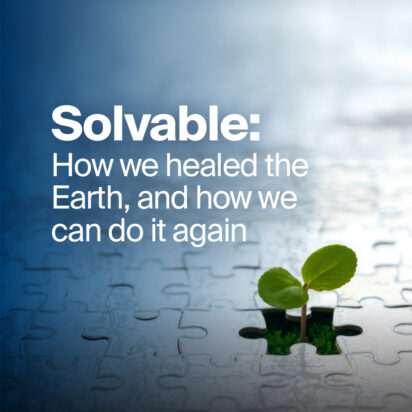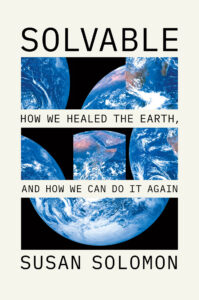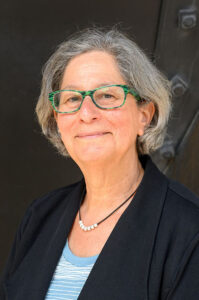
Solvable: Lecture and Book Signing with Susan Solomon
Date: Wednesday, April 23, 2025 Time: 5:30 - 8:00pm Location: 54-100 | Dixie Lee Bryant Lecture Hall | MIT Campus, Cambridge, MAIn honor of Earth Week, please join us for a thought-provoking evening with Professor Susan Solomon, celebrating her recent book, Solvable: How we healed the Earth, and how we can do it again.
5:30 p.m. | 54-100 — the Dixie Lee Bryant (1891) Lecture Hall
Author’s talk and Q+A, moderated by Professor John Fernández, Director of the MIT Environmental Solutions Initiative
MIT’s Buildings 54 and 55 are conjoined, located in McDermott Court. The closest street access is near 21 Ames Street. Enter the Building 55 atrium and head for the elevators; look for the large button labeled Lecture Hall inside.
6:30 p.m. | 55-Atrium – Tina and Hamid Moghadam Building
Book signing and reception in the Fred A. Middleton (1971) Atrium, Building 55. Limited copies of Professor Solomon’s book will be available for purchase.
Rejoin us downstairs in the Building 55 Atrium.
Pre-registration is closed, but you are still welcome to join us in person or via live-stream!
Questions? Contact Allison Drovairos

About the Book:
We solved planet-threatening problems before, Susan Solomon argues, and we can do it again. Solomon knows firsthand what those solutions entail. She first gained international fame as the leader of an expedition to Antarctica in 1986, making discoveries that were key to healing the damaged ozone layer. She saw a path—from scientific and public awareness to political engagement, international agreement, industry involvement, and effective action. Solomon, an atmospheric scientist and award-winning author, connects this career-defining triumph to the inside stories of other past environmental victories—against ozone depletion, smog, pesticides, and lead in gasoline—to extract the essential elements of what makes change possible.

About the Author:
Susan Solomon is the Lee and Geraldine Martin Professor of Environmental Studies at the Massachusetts Institute of Technology, and is the current Chair of the Program in Oceans, Atmospheres and Climate in the Department of Earth, Atmospheric and Planetary Sciences. Prior to coming to MIT and joining the EAPS faculty in 2012, she was a scientist at NOAA in Boulder, Colorado and an adjunct professor at the University of Colorado from 1982-2011 where she first theorized about the cause behind the Antarctic ozone hole. In 1986 and 1987, she served as the Head Project Scientist of the National Ozone Expedition at McMurdo Station, Antarctica, making some of the first measurements that confirmed chlorofluorocarbons (CFCs) as the culprit. This pioneering work is among the foundations for the Montreal Protocol—the landmark treaty limiting global CFC emissions—which, 30 years its signing, became a resounding environmental success story, with Solomon documenting evidence of the ozone hole’s healing in response in work carried out at MIT. In March of 2000, Solomon received the National Medal of Science, the United States’ highest scientific award. A member of the National Academy of Sciences and the American Philosophical Society, Solomon has also earned the highest awards of the American Geophysical Union (the Bowie Medal), the American Meteorological Society (the Rossby Medal), and the Geochemical Society (the Goldschmidt Medal). She also received the Grande Medaille of the Academy of Sciences in Paris for her leadership in ozone and climate science in 2008 and the Crafoord Prize of the Swedish Academy of Sciences in 2018. She served as co-chair of the Fourth Assessment of the Intergovernmental Panel on Climate Change (IPCC, 2007) climate science report, which went on to be recognized with the Nobel Peace Prize. In 2008, she was named one of the year’s 100 most influential people in Time magazine.
